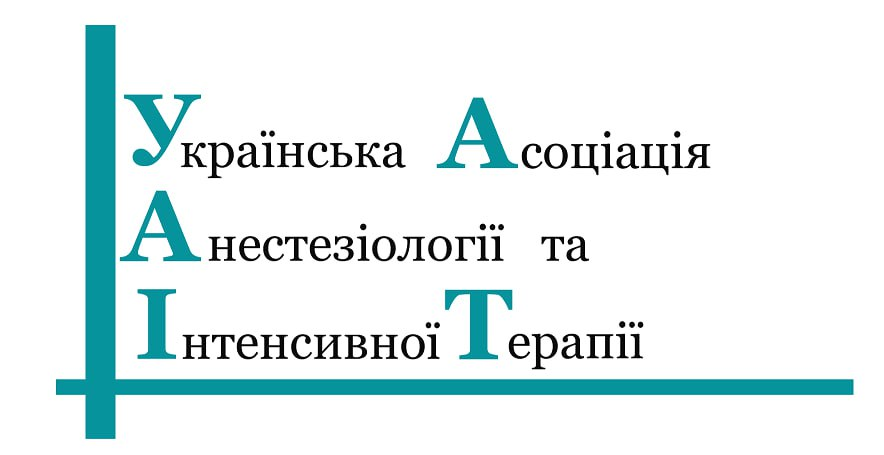ВПЛИВ ЗАГАЛЬНОЇ АНЕСТЕЗІЇ НА РОЗВИТОК ПІСЛЯОПЕРАЦІЙНИХ КОГНІТИВНИИХ ДИСФУНКЦІЙ У ПАЦІЄНТІВ З ІШЕМІЧНОЮ ХВОРОБОЮ СЕРЦЯ ПІСЛЯ КОРОНАРНОГО ШУНТУВАННЯ НА ПРАЦЮЮЧОМУ СЕРЦІ
DOI:
https://doi.org/10.25284/2519-2078.1(110).2025.325985Ключові слова:
коронарне шунтування, когнітивна дисфункція, нейрокогнітивне тестування, загальна анестезіяАнотація
Вступ. Проблема розвитку когнітивних дисфункцій, як безпосередніх ускладнень анестезіологічного забезпечення кардіохірургічних втручань, а також довгострокових когнітивних змін, що виникають в післяопераційному періоді, набуває дедалі більшого значення через зростання частоти та обсягів кардіохірургічних операцій. Частота виникнення післяопераційних когнітивних дисфункцій залежить від типу операції і є більш вираженою у пацієнтів, які перенесли кардіохірургічну операцію. Етіологія та патогенез ПОКД є предметом активних досліджень. Однією з основних теорій є нейротоксичний вплив анестетиків на нейронні структури.
Мета роботи: вивчити частоту розвитку післяопераційних когнітивних дисфункцій у ранній та відстрочений періоди у пацієнтів з ішемічною хворобою серця, які перенесли операцію коронарного шунтування на працюючому серці під загальною анестезією, що базувалася на севофлурані та на комбінації севофлурану з дексмедетомідином.
Матеріали та методи. Дослідження проводилося на базі НЦХТ імені О.О. Шалімова у період з 2022 по 2024 рр. У роботу було включено 50 пацієнтів з ішемічною хворобою серця, яким проводили операцію коронарне шунтування на працюючому серці, з яких 46 завершили клінічне спостереження.
Результати та обговорення. Наше дослідження виявило високу частоту післяопераційної когнітивної дисфункції (ПОКД) у пацієнтів з ішемічною хворобою серця (ІХС), які перенесли коронарне шунтування на працюючому серці. ПОКД спостерігалася у 45,8 % пацієнтів, яким проводилася анестезія севофлураном, тоді як у групі, де додатково застосовувався дексмедетомідин, цей показник був нижчим — 36,6 %. Згодом частота ПОКД поступово зменшувалася. У групі, що отримувала дексмедетомідин, її рівень майже повернувся до доопераційних значень (4,5 %), тоді як у групі севофлурану у 16,7 % пацієнтів залишалися стійкі когнітивні порушення. Застосування дексмедетомідину дозволяло знизити потребу у фентанілі та рокуронію броміду під час операції.
Висновки. Це клінічне дослідження продемонструвало, що комбінація севофлурану та дексмедетомідину знижує частоту післяопераційної когнітивної дисфункції та зменшує потребу в наркотичних анальгетиках і міорелаксантах під час операції у пацієнтів з ішемічною хворобою серця, які перенесли коронарне шунтування на працюючому серці.
Посилання
Jungwirth B, Zieglgänsberger W, Kochs E, Rammes G. Anesthesia and postoperative cognitive dysfunction (POCD) Mini Rev Med Chem. 2009;9(14):1568–1579. doi: 10.2174/138955709791012229.].
 |
|  |
| 
Ge Y, Ma Z, Shi H, Zhao Y, Gu X, Wei H. Incidence and risk factors of postoperative cognitive dysfunction in patients underwent coronary artery bypass grafting surgery. Zhong Nan Da Xue Xue Bao Yi Xue Ban. 2014;39(10):1049–1055. doi: 10.11817/j.issn.1672-7347.2014.10.011.
 |
| 
Steinmetz J, Christensen KB, Lund T, et al. Long-term consequences of postoperative cognitive dysfunction. Anesthesiology. 2009;110:548–55
 |
|  |
| 
Wu CL, Hsu W, Richman JM, Raja SN. Postoperative cognitive function as an outcome of regional anesthesia and analgesia. Reg Anesth Pain Med. 2004;29(3):257–68
 |
|  |
| 
KLETEČKA Jakub, Kateřina SOUMAR a Jan BENEŠ, 2017. Kognitivní poruchy v perioperační a intenzivní péči. Anesteziologie a intenzivní medicína. 2017; 28:297-304

Monk TG, Weldon BC, Garvan CW, Dede DE, van der Aa MT, Heilman KM, et al. Predictors of cognitive dysfunction after major noncardiac surgery. Anesthesiology. (2008) 108:18–30. doi: 10.1097/01.anes.0000296071.19434.1e,
 |
|  |
| 
Moller JT, Cluitmans P, Rasmussen LS, Houx P, Rasmussen H, Canet J, et al. Long-term postoperative cognitive dysfunction in the elderly ISPOCD1 study. ISPOCD investigators. International study of post-operative cognitive dysfunction. Lancet. (1998) 351:857–61. doi: 10.1016/s0140-6736(97)07382-0,
 |
|  |
| 
Greaves D, Ross TJ, Ghezzi ES, Keage HAD, Psaltis PJ, Davis DHJ, et al. Risk factors for delirium and cognitive decline following coronary artery bypass grafting surgery: a systematic review and meta-analysis. J Am Heart Assoc. (2020) 9:e017275. doi: 10.1161/JAHA.120.017275
 |
|  |
| 
Silbert B, Evered L, Scott DA, McMahon S, Choong P, Ames D, et al. Preexisting cognitive impairment is associated with postoperative cognitive dysfunction after hip joint replacement surgery. Anesthesiology. (2015) 122:1224–34. doi: 10.1097/ALN.0000000000000671
 |
|  |
| 
Lelis RG, Krieger JE, Pereira AC, Schmidt AP, Carmona MJ, Oliveira SA, et al. Apolipoprotein E4 genotype increases the risk of postoperative cognitive dysfunction in patients undergoing coronary artery bypass graft surgery. J Cardiovasc Surg (Torino). (2006) 47:451–6
 |
|  |
| 
Lachmann G, Feinkohl I, Borchers F, Ottens TH, Nathoe HM, Sauer A-M, et al. Diabetes, but not hypertension and obesity, is associated with postoperative cognitive dysfunction. Dement Geriatr Cogn Disord. (2018) 46:193–206. doi: 10.1159/000492962
 |
|  |
| 
Bayram H, Erer D, Iriz E, Zor MH, Gulbahar O, Ozdogan ME. Comparison of the effects of pulsatile cardiopulmonary bypass, non-pulsatile cardiopulmonary bypass and off-pump coronary artery bypass grafting on the inflammatory response and S-100beta protein. Perfusion. (2011) 27:56–64. doi: 10.1177/0267659111424639
 |
|  |
| 
Sun Y, Feng H, Zou T, Hou M, Gu C, Wang Y, et al. Assessment of risk factors for postoperative cognitive dysfunction after coronary artery bypass surgery: a single-center retrospective cohort study. Biosci Rep. (2021) 41:BSR20190719. doi: 10.1042/BSR20190719
 |
|  |
| 
Hou R, Wang H, Chen L, Qiu Y, Li S. POCD in patients receiving total knee replacement under deep vs light anesthesia: a randomized controlled trial. Brain Behav. (2018) 8:e00910. doi: 10.1002/brb3.910
 |
|  |
| 
Czok M, Pluta MP, Putowski Z, Krzych LJ. Postoperative neurocognitive disorders in cardiac surgery: investigating the role of intraoperative hypotension. a systematic review. Int J Environ Res Public Health. (2021) 18:1–15. doi: 10.3390/ijerph18020786
 |
|  |
| 
[Kurnaz P, Sungur Z, Camci E, Sivrikoz N, Orhun G, Senturk M, et al. [The effect of two different glycemic management protocols on postoperative cognitive dysfunction in coronary artery bypass surgery]. Rev Bras Anestesiol. (2017) 67:258–65. doi: 10.1016/j.bjan.2016.01.007
 |
|  |
| 
Cui RS, Wang K, Wang ZL. Sevoflurane anesthesia alters cognitive function by activating inflammation and cell death in rats. Exp Ther Med. 2018;15:4127–30.
 |
|  |
| 
Qiu Y, Wang Y, Wang X, Wang C, Xia ZY. Role of the hippocampal 5-HT1A receptor-mediated cAMP/PKA signalling pathway in sevoflurane-induced cognitive dysfunction in aged rats. J Int Med Res. 2018;46:1073–85.
 |
|  |
| 
Guo Y, Sun L, Zhang J, Li Q, Jiang H, Jiang W. Preventive effects of low-dose dexmedetomidine on postoperative cognitive function and recovery quality in elderly oral cancer patients. Int J Clin Exp Med. 2015;8:16183–90.

Ding L, Zhang H, Mi W, Wang T, He Y, Zhang X, et al. Effects of dexmedetomidine on anesthesia recovery period and postoperative cognitive function of patients after robot-assisted laparoscopic radical cystectomy. Int J Clin Exp Med. 2015;8:11388–95.

Tang N, Ou C, Liu Y, et al. Effect of inhalational anaesthetic on postoperative cognitive dysfunction following radical rectal resection in elderly patients with mild cognitive impairment. J Int Med Res. 2014;42:1252–61.
 |
|  |
| 
Li WX, Luo RY, Chen C, et al. Effects of propofol, dexmedetomidine, and midazolam on postoperative cognitive dysfunction in elderly patients: a randomized controlled preliminary trial. Chin Med J (Engl). 2019;132(4):437–45.
 |
|  |
| 
Geng YJ, Wu QH, Zhang RQ. Effect of propofol, sevoflurane, and isoflurane on postoperative cognitive dysfunction following laparoscopic cholecystectomy in elderly patients: a randomized controlled trial. J Clin Anesth. 2017;38:165–71
 |
|  |
| 
Bryson GL, Wyand A, Wozny D, Rees L, TaljaardM, Nathan H. A prospective cohort study evaluating associations among delirium, postoperative cognitive dysfunction, and apolipoprotein E genotype following open aortic repair. Can J Anaesth. 2011;58(3):246–55.
 |
|  |
| 
Glumac S, Kardum G, Sodic L, et al. Longitudinal assessment of preoperative dexamethasone administration on cognitive function after cardiac surgery: a 4-year follow-up of a randomized controlled trial. BMC Anesthesiol. 2021;21(1):129
 |
|  |
| 
Chen W, Liu B, Zhang F, Xue P, Cui R, Lei W. The effects of dexmedetomidine on post-operative cognitive dysfunction and inflammatory factors in senile patients. Int J Clin Exp Med. 2015;8:4601–5.

Chen J, Yan J, Han X. Dexmedetomidine may benefit cognitive function after laparoscopic cholecystectomy in elderly patients. Exp Ther Med. 2013;5:489–94.
 |
|  |
| 
Djaiani G, Silverton N, Fedorko L, et al. Dexmedetomidine vs propofol sedation reduces delirium after cardiac surgery: a randomized controlled trial. Anesthesiology. 2016;124(2):362–8.
 |
|  |
| 
Zhang M, He Y, Wu W et al. Manual of Psychiatric Rating Scales[M]. Changsha:Hunan Science and Technology,2015:280–3.
Lezak MD, Howieson DB, Loring DW, et al. Neuropsychological Assessment. 4th ed. New York, NY, US: Oxford University Press; 2004.
Kortte KB, Horner MD, Windham WK. The trail-making test, part B: cognitive flexibility or ability to maintain set? Appl Neuropsychol. 2002;9(2):106–9.
 |
| 
Hansen MV. Chronobiology, cognitive function and depressive symptoms in surgical patients. Dan Med J. 2014;61:B4914.
 |
|  |
| 
Zhu A, Shen L, Xu L, et al. Suppression of Wnt5a, but not wnts, relieves chronic post-thoracotomy pain via anti-inflammatory modulation in rats. Biochem Biophys Res Commun. 2017;493:474–80.
 |
|  |
| 
Evered L, Silbert B, Knopman DS, et al. Recommendations for the nomenclature of cognitive change associated with anaesthesia and surgery-2018. Br J Anaesth. 2018;121(5):1005–12.
 |
|  |
| 
Guo L, Lin F, Dai H, et al. Impact of Sevoflurane Versus Propofol Anesthesia on Post-operative Cognitive Dysfunction in Elderly Cancer patients: a doubleblinded Randomized Controlled Trial. Med Sci Monit. 2020;26:e919293.
 |
|  |
| 
Hu N, Guo D, Wang H, et al. Involvement of the blood-brain barrier opening in cognitive decline in aged rats following orthopedic surgery and high concentration of sevoflurane inhalation. Brain Res. 2014;1551:13–24.
 |
|  |
| 
Yue T, Shanbin G, Ling M, et al. Sevoflurane aggregates cognitive dysfunction and hippocampal oxidative stress induced by beta-amyloid in rats. Life Sci. 2015;143:194–201
 |
|  |
| 
Ran J, Bai X, Wang R, Li X. Role of Dexmedetomidine in early POCD in patients undergoing thoracic surgery. Biomed Res Int. 2021;2021:8652028.
 |
|  |
| 
Wang Z, Shen Z, Wang H, Zhang L, Dong R. Effect of dexmedetomidine on the cognitive function of patients undergoing gastric cancer surgery by regulating the PI3K/AKT signaling pathway. Oncol Lett. 2020;19(2):1151–6
 |
|  |
| 
Hao J, Qiao Y, Li T, et al. Investigating changes in the serum inflammatory factors in Alzheimer’s Disease and their correlation with cognitive function. J Alzheimers Dis. 2021;84(2):835–42.
 |
|  |
| 
Chen W, Liu B, Zhang F, Xue P, Cui R, Lei W. The effects of dexmedetomidine on post-operative cognitive dysfunction and inflammatory factors in senile patients. Int J Clin Exp Med. 2015;8(3):4601–5.

##submission.downloads##
Опубліковано
Як цитувати
Номер
Розділ
Ліцензія
Авторське право (c) 2025 В.В. АНТОНЕНКО, С.О. ДУБРОВ

Ця робота ліцензується відповідно до Creative Commons Attribution-NonCommercial 4.0 International License.
Автори, які публікуються у цьому журналі, погоджуються з наступними умовами:
a. Автори залишають за собою право на авторство своєї роботи та передають журналу право першої публікації цієї роботи на умовах ліцензії Creative Commons Attribution-NonCommercial 4.0 International License, котра дозволяє іншим особам вільно розповсюджувати опубліковану роботу з обов'язковим посиланням на авторів оригінальної роботи та першу публікацію роботи у цьому журналі.
b. Автори мають право укладати самостійні додаткові угоди щодо неексклюзивного розповсюдження роботи у тому вигляді, в якому вона була опублікована цим журналом (наприклад, розміщувати роботу в електронному сховищі установи або публікувати у складі монографії), за умови збереження посилання на першу публікацію роботи у цьому журналі.
c. Політика журналу дозволяє і заохочує розміщення авторами в мережі Інтернет (наприклад, у сховищах установ або на особистих веб-сайтах) рукопису роботи, як до подання цього рукопису до редакції, так і під час його редакційного опрацювання, оскільки це сприяє виникненню продуктивної наукової дискусії та позитивно позначається на оперативності та динаміці цитування опублікованої роботи (див. The Effect of Open Access).







